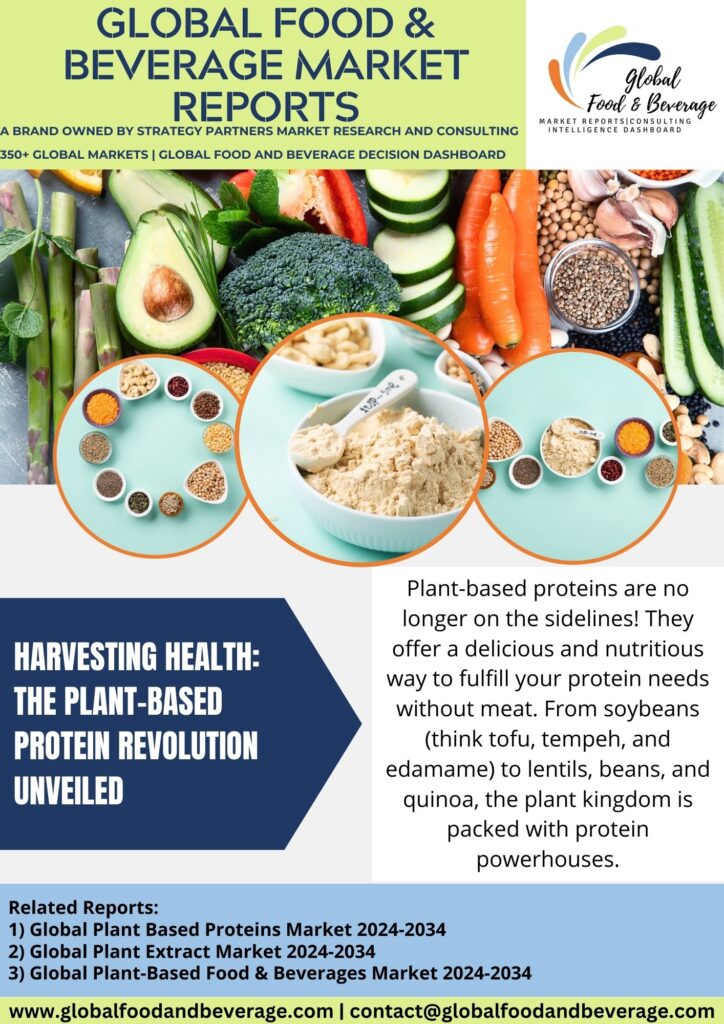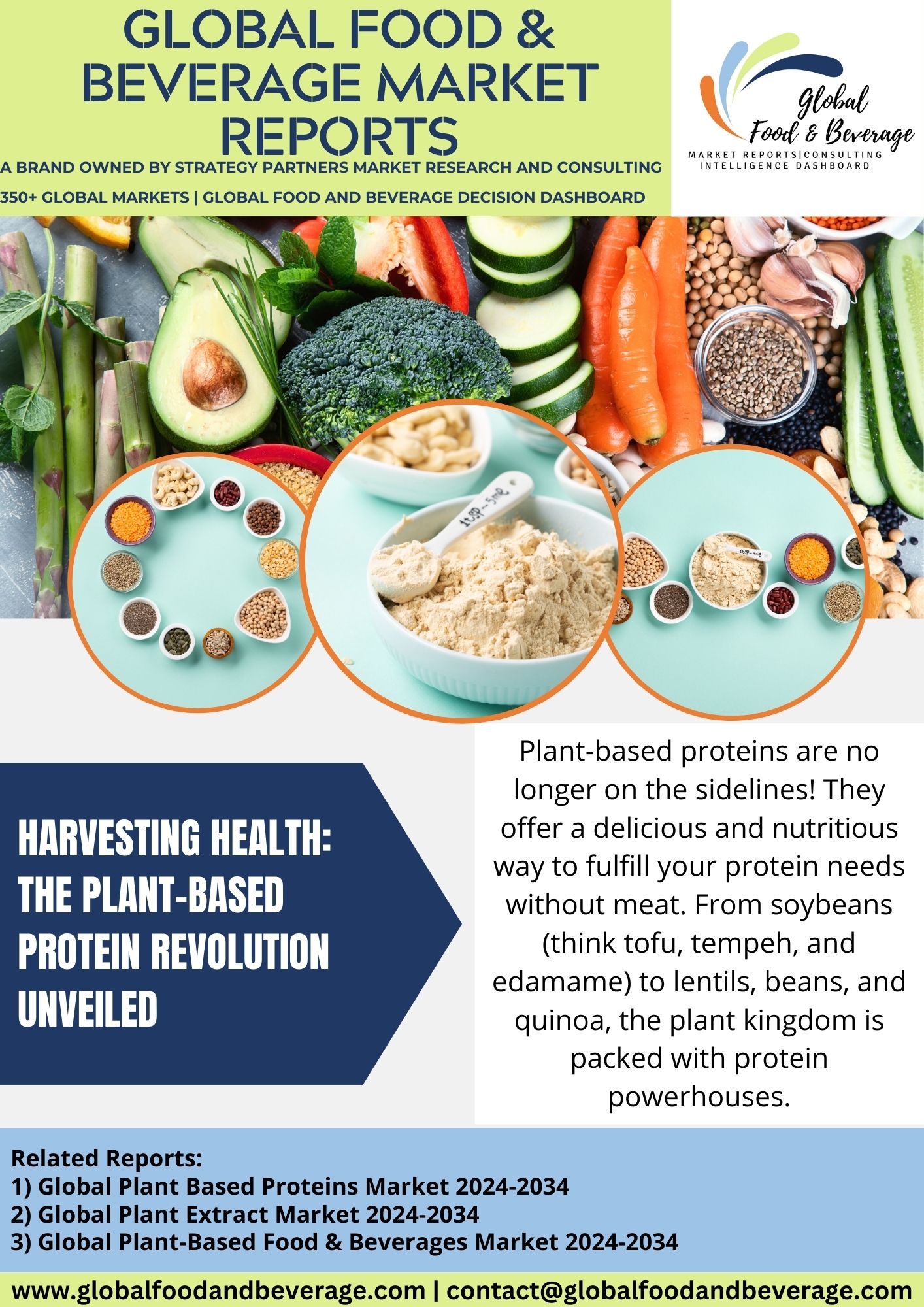Harvesting health: the plant-based protein revolution unveiled
Plant-based proteins have emerged as a nutritional powerhouse, gaining widespread popularity as consumers increasingly adopt plant-centric diets for health, environmental, and ethical reasons. Derived from various plant sources, these proteins provide an alternative to traditional animal-based proteins and are now a staple in the diets of many individuals.

Legumes, grains, nuts, seeds, and even certain vegetables are rich sources of plant-based proteins. Legumes, such as lentils, chickpeas, and black beans, are particularly noteworthy for their high protein content and versatility in various culinary applications. Quinoa, a grain-like seed, stands out as a complete protein, containing all nine essential amino acids.
One of the key advantages of plant-based proteins is their lower environmental impact compared to animal-based counterparts. The production of plant-based proteins generally requires fewer natural resources and generates fewer greenhouse gas emissions, aligning with the growing global awareness of sustainable food choices.
Health-conscious consumers are drawn to plant-based proteins for their associated health benefits. These proteins often come with additional nutrients, such as fiber, vitamins, and minerals, contributing to a well-rounded and wholesome diet. Moreover, plant-based diets have been linked to various health benefits, including reduced risks of chronic diseases like heart disease and certain types of cancer.
The market for plant-based proteins has witnessed exponential growth in recent years, with an expanding array of products available to cater to different dietary preferences. Plant-based burgers, protein bars, and plant-based meat alternatives have become mainstream, appealing to both vegetarians and individuals looking to incorporate more plant-based options into their diets.
As the demand for plant-based proteins continues to soar, ongoing research and development efforts focus on enhancing the taste, texture, and nutritional profile of these products. The evolution of plant-based protein offerings reflects a broader shift towards sustainable and mindful eating practices, making plant-based proteins a pivotal player in the contemporary food landscape.
ADVANCEMENT:
In recent years, there has been a remarkable surge in advancements within the realm of plant-based proteins, reflecting a dynamic shift in consumer preferences toward sustainable and health-conscious choices. Technological innovations and research breakthroughs have played a pivotal role in enhancing the quality, taste, and versatility of plant-based protein sources.
One notable advancement is the development of high-tech extraction methods that efficiently isolate proteins from plants, preserving their nutritional integrity. This has led to the creation of plant-based protein isolates and concentrates that closely mimic the protein content and functionality of animal-derived counterparts.
Furthermore, food scientists and engineers have been instrumental in improving the texture and sensory aspects of plant-based protein products. Innovations in processing techniques and the incorporation of novel ingredients contribute to the creation of plant-based alternatives that closely replicate the taste and mouthfeel of traditional animal-based products.
Beyond mimicking meat, there has been a diversification of plant-based protein sources, with a spotlight on alternatives such as pea protein, hemp protein, and algae-based proteins. These alternatives not only cater to a variety of dietary preferences but also offer a more sustainable approach to protein production, with reduced environmental impact compared to traditional livestock farming.
Overall, the continuous advancements in plant-based proteins signify a transformative era in the food industry, providing consumers with an expanding array of nutritious and environmentally friendly options while challenging preconceived notions about the sensory qualities of plant-based foods.
CHALLENGE:
Advancements in personalized nutrition have ushered in a transformative era by leveraging cutting-edge technologies and scientific breakthroughs. The integration of artificial intelligence and machine learning enables the analysis of vast datasets, including genetic information, microbiome composition, and lifestyle factors. This sophisticated analysis allows for precise identification of individual dietary needs, optimizing nutritional recommendations based on genetic predispositions and health goals.
Metabolic profiling has become more refined, enabling a deeper understanding of how individuals metabolize nutrients. This facilitates tailored dietary plans that consider metabolic efficiency, ensuring a personalized and effective approach to nutrition.
Technological innovations extend to wearable devices and health trackers that continuously monitor biometrics, providing real-time data to refine and adapt personalized nutrition plans. DNA testing companies offer at-home genetic testing kits, providing individuals access to insights about their genetic makeup and personalized dietary recommendations.
Moreover, mobile applications and digital platforms make personalized nutrition accessible, offering user-friendly interfaces for tracking dietary habits, monitoring health metrics, and receiving personalized guidance. The shift towards personalized nutrition reflects a paradigmatic change, acknowledging the uniqueness of individuals and their response to nutrition, paving the way for a more targeted and effective approach to promoting health and well-being.
CONCLUSION:
In conclusion, the evolution of plant-based proteins signifies a transformative shift in the food industry, driven by technological advancements and changing consumer preferences. Innovations in extraction methods, texture optimization, and diversification of protein sources have elevated plant-based alternatives to new heights. This not only caters to the growing demand for sustainable and ethical food choices but challenges traditional perceptions of plant-based products. The ongoing advancements in plant-based proteins underscore a promising future, offering consumers an increasingly diverse, nutritious, and environmentally conscious array of options for a more sustainable and ethical approach to protein consumption.
